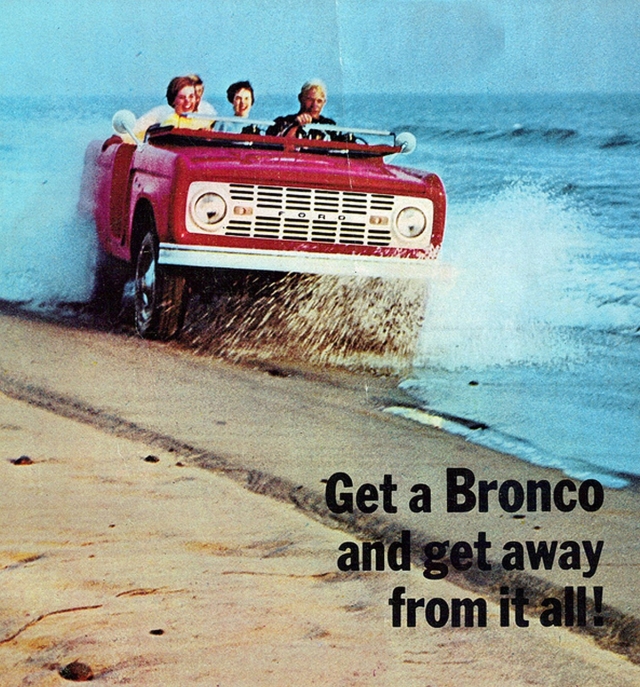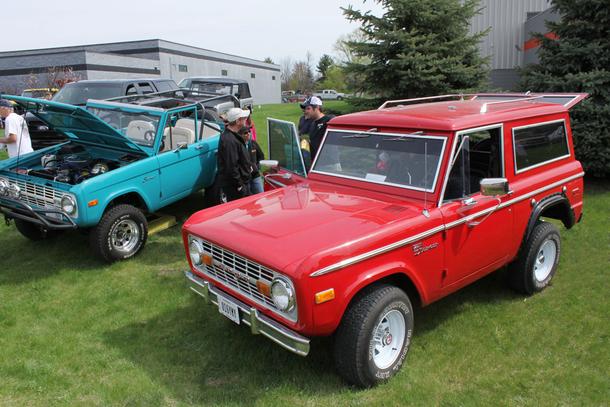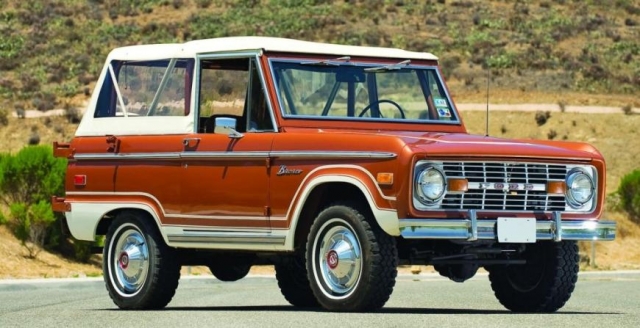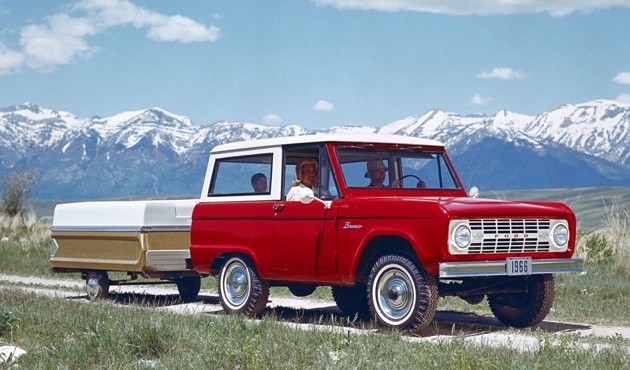Ever since the early 1900s, off-road vehicles have existed. But it wasn’t until the 1960s and 70s that the idea of an off-road vehicle came together with greater passenger comfort and a larger luggage area. It was during this time period that the majority of major off-road players came into existence, including the first-generation Ford Bronco.
 Still loved today by off-road and classic 4×4 enthusiasts, the 1966 to 1977 Ford Bronco truly set the stage for what some of the exemplary off-road vehicles have to offer today.
Still loved today by off-road and classic 4×4 enthusiasts, the 1966 to 1977 Ford Bronco truly set the stage for what some of the exemplary off-road vehicles have to offer today.
Offering a choice of body configurations atop a small 92-inch wheelbase, including a roadster (which only stuck around through 1968), wagon and half-cab body, as well as a sport package added in 1967, the first-generation Ford Bronco is considered by many to be the Ford’s first compact SUV. But it wasn’t just its compact size that set the Bronco up for what Ford hoped would be a successful first-generation run.
Built on a its own separate frame, featuring a suspension system and body that were not shared by any other Ford model at the time, the early Bronco offered a change in pace compared to other compact off-road models introduced prior, like the International Harvester Scout and the Jeep CJ models offered at the time.
Under the hood of the Bronco from the beginning, you could find a standard 170ci, 105HP straight-six with modified solid valve lifters, an oil-bath air cleaner, heavy-duty fuel pump and a carburetor designed with a float bowl that could compensate for any tilt it experienced, preventing fuel starvation on steep grades–all great adaptations for off-road driving. This engine was offered only with a three-speed, column shift manual transmission.
The early Broncos also featured modified F-100 front and rear four-wheel-drive axles, a coil spring front suspension with a lateral track bar, a leaf spring rear suspension, Bronco-specific Dana 20 rearend and locking hubs.

Image: Auto Trader Classic
The Bronco came with many added factory options straight out of the shoot, including a 289ci Windsor V8 good for 200HP (offered late in the ’66 model year), front bucket seats, a rear bench, CB radio, tachometer and even things like a tow bar, post hole digger and snow plow offered by dealerships. You could even get the Bronco outfitted to be a small tow truck or firetruck.
Despite all these standard and optional features, the Bronco’s success declined shortly after its introduction to the market.
During its first year, the Bronco out-sold all its competitors, but dropped to the second best seller (to the Jeep CJ) in 1967 to 1969, when the Chevy K5 blazer was introduced. After the K5 Blazer came out, Ford upped the aunty to try to compete, offering a 302ci Windsor V8 in place of the 289, but the move failed to put the Bronco back where Ford wanted it–at the top.

Image: Hemmings
By 1973, more changes were made to the Bronco to try to push still declining sales upward, including the introduction of the 200ci straight-six engine to replace the previous 170ci model, and options like an automatic transmission and power steering. This helped the Bronco see a spike in sales, but not nearly enough to make it a serious sales competitor to Chevy’s full-size SUV.
The Bronco remained virtually unchanged, because of the lack of money from poor sales numbers, for four more years before a new full-size version replaced the older model in 1978.
Although the first-generation Ford Bronco saw its success diminish throughout, it wasn’t totally a lost cause. Before the model was offered to the public, the SUV made a name for itself in modified Bill Strope-built form, racing in off-road competitions like the Mint 400, Baja 500 and Mexican 1000 under the Holman-Moody race team.
The model also competed in the 1969 Baja 1000 (previously the Mexican 1000), spawning a Baja Bronco package, which included quick-ratio power steering, fender flares, a roll bar and a patriotic paint scheme, to be released for public purchase in 1971. Due to its substantially higher price (nearly $2,000 more than your traditional Bronco), however, only 650 left Ford dealerships.
Adding to the model’s success rating is the fact that a new Ford Bronco with classic styling (built on the 2015 F-150 platform) may be in the works for the near future!
Success is in the eye of the beholder and even today, many off-road enthusiasts consider the early Ford Bronco to be a winning model. Because of this, your chances of seeing a number of 1966 to 1977 Broncos on the trail next time you’re out running your off-road machine, are great. And we can’t say that’s a bad thing!



















